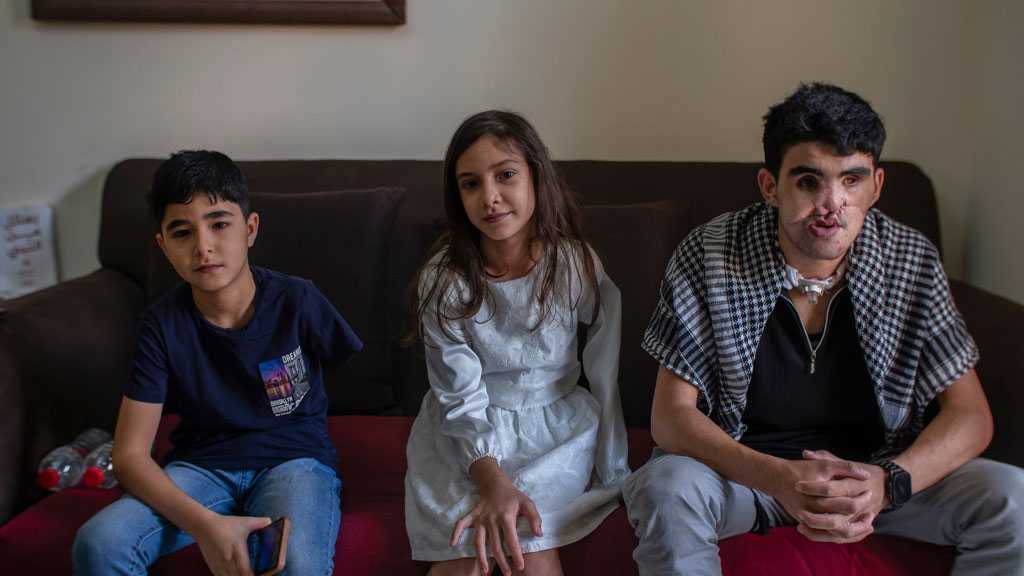Black Ramadan for Palestinians as Zionist state starves them
Source: AFP, 24-9-2006
JABALIYA REFUGEE CAMP, Gaza Strip - `Ramadan is a holy month but this year it`ll be a black month,` says Ahmed Hassan Makdad queuing at the UN food distribution centre in Gaza`s biggest refugee camp.
Around him, dozens of fellow Palestinians squeeze against the grilled ticket windows at UNWRA, the UN agency for Palestinian refugees, like Ahmed to collect rations of flour, oil, rice and sugar in the Jabaliya refugee camp.
For Palestinians, the holy Muslim fasting month of Ramadan that started this weekend is likely to be the most austere since the 1993 signing of the Oslo peace accords with "Israel". Chances of celebrating in style are remote.
Muslims must refrain from eating, drinking and having sexual relations from dawn to dusk during Ramadan, but traditionally break the fast at sundown with a special meal gathering together friends and family.
`Lamb? What do you expect me to buy a lamb with?` counters Ahmed when asked about the menu on offer at home for the holy month.
No longer will Ahmed be on the treadmill of visits to family and friends. Over the last six months, the Gaza Strip has sunk into the most severe crisis in 13 years, and such visits have become far too expensive.
`Tradition states that we give out presents, cakes or meat,` says the 57-year-old father of eight.
`Instead of 10 visits this year, I`ll only make one,` adds Ahmed.
The Gaza economy is close to zero, given "Israeli" closures and Western aid boycotts, exacerbated by a massive military offensive that has killed more than 200 Palestinians since late June following the capture of an "Israeli" soldier.
Tens of thousands of civil servants have not been paid in ull since late February, affecting the livelihoods of around one million Palestinians -- a quarter of those living in the Gaza Strip and West Bank.
Since March, UNWRA has added 100,000 people to lists of those receiving food aid in the Gaza Strip. Some 830,000 people, 60 percent of the population, now receive UN aid.
The World Food Programme provides additional assistance to 280,000 people out of Gaza`s total population of 1.4 million people packed into the crowded, impoverished Mediterranean coastal territory.
`The situation is crap. Look at all the kids here. You think they`d come here if they had work?` says the helpless Ahmed.
On a bench, Um Ossam sells food rations to Palestinians not classified as refugees and who do not therefore qualify for UNRWA aid.
`I sell sacks of flour to buy other things: at the moment it`s the new school year and my children need books, exercise books and pens,` she says, driving a hard bargain with a customer.
`There won`t be an Eid celebration this year,` she says, her hair tucked into a coloured headscarf and her body enveloped in billowing black.
On the other side of the agency offices, Um Nassim helps her son load six kilos of flour onto a cart drawn by a tired and emaciated donkey.
`I think this Ramadan will be the hardest of my life,` she sighs, her flour-covered arms falling to her side, ahead of the fasting month, which was set to start around Sunday depending on sightings of the crescent moon.
`Is this life? We rely on foreign aid,` interjects angry taxi driver Samir Al Qatari interjects. In his eyes, no one escapes blame.
`The entire world is an accomplice to Palestinian misery: the United States, Europe and Arab countries. Arab countries especially.`
The European Union and United States cut direct assistance to the aid-dependent Palestinian government after the Islamic movement Hamas took office in March following a massive election victory.
The West has made a resumption of aid dependent on the movement formally recognising "Israel's" right to exist, renouncing violence and abiding by previous peace agreements.
Arab banks have been reluctant to transfer foreign funds to the government, fearful of incurring sanctions owing to Hamas` status as a (so-called) `terrorist` organisation in the eyes of the European Union and United States.
Atef Arhuma, a 41-year-old civil servant is at a loss about what to do for the holy month, not to mention the days and weeks that follow.
`First I need to pay what I owe. I have a 15,000-shekel (3,465-dollar) debt at the shops,` he said.




